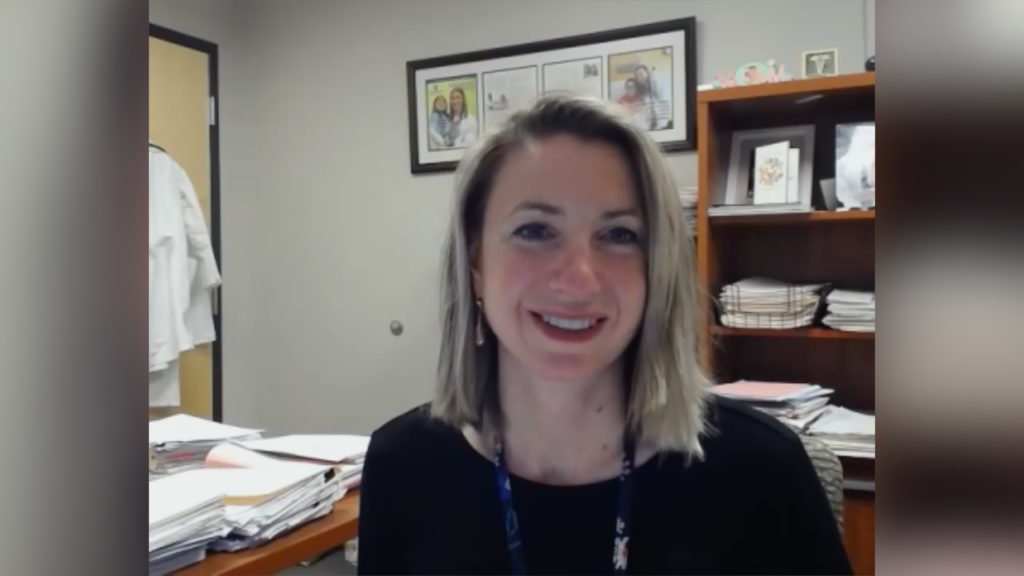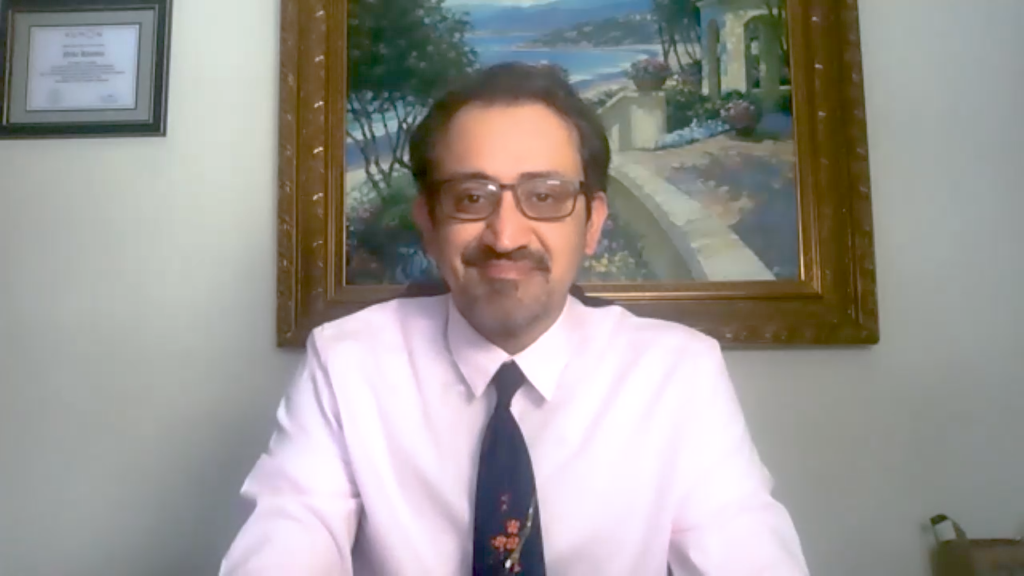 touchIMMUNOLOGY coverage of EULAR 2025:
touchIMMUNOLOGY coverage of EULAR 2025:
BMS-986353 (CC-97540) is a CD19 CAR T-cell therapy being investigated in the phase I, multicentre, open-label, Breakfree-1 trial (NCT05869955) in patients with severe refractory systemic lupus erythematosus (SLE), idiopathic inflammatory myopathies (IIM), and systemic sclerosis (SSc). In this interview Dr Dinesh Khanna (Professor of Medicine and Director, University of Michigan Scleroderma Program, MI, USA) discusses the rationale for investigating CAR T-cells in autoimmune diseases, and the aims, methodology and preliminary data from the Breakfree-1 trial.
The abstract “Tolerability and Efficacy of BMS-986353 (CC-97540), a CD19-Directed Chimeric Antigen Receptor (CAR) T Cell Therapy Manufactured Using a Next-Generation Process for Systemic Sclerosis: Updated Data From the Phase 1 Breakfree-1 Study.” was presented at EULAR 2025, Barcelona, 11–14 June 2025.
Q. What was the rationale for investigating CAR T-cells in autoimmune diseases?
CAR T-cells are engineered to target specific markers of elevated autoimmune activity, such as CD19 on B-cells, which is a key driver for disease pathology in various autoimmune diseases. Unlike other B-cell depleting therapies like monoclonal antibodies, CAR T can migrate into and expand in multiple tissue types to deplete targeted B-cells across the body. This leads to a deep B-cell depletion in peripheral blood and other tissues, leading to immune reset which has been shown to induce sustained remissions or clinical improvements in the initial 15 patient study from the Erlangen team in Germany.
Q. What is the mechanism of action of BMS-986353?
BMS-986353 or CD19 NEX-T is an autologous CAR T targeted to CD19 expressed broadly in B-cells and plasmablasts. It is based on the same CD19 CAR construct of liso-cel, which is approved for B-cell lymphoma. BMS-986353 is manufactured using the NEX-T process, which utilizes a shortened manufacturing time and results in an optimized phenotype of the CAR T product. BMS-986353 targets CD19-expressing B-cells for deep depletion of autoreactive B-cells central to autoimmunity.
Q. What was the aim and methodology of the Breakfree-1 trial?
Breakfree-1 is a phase I, multicentre, open-label basket trial for patients with severe, refractory SLE, IIM, and SSc. The primary endpoint of the Breakfree-1 trial is to evaluate the safety and tolerability of BMS-986353 and determine the dose for the expansion phase for each autoimmune indication. Patients undergo leukapheresis and lymphodepletion prior to CAR T infusion.
Q. What preliminary data already surrounds BMS-986353?
Preliminary data from the Breakfree-1 trial presented at ACR and ASH 2024 showed a manageable safety profile, potentially transformational clinical responses, robust CAR T-cell expansion, and immune reset potential for BMS-986353 in SLE, IIM, and SSc patients.
Q. What were the preliminary efficacy and safety findings in patients with SSc?
Safety data for the first 9 patients with severe, refractory SSc treated with BMS-986353 show an acceptable safety profile with no unexpected adverse events (AEs), with all observed cytokine release syndrome (CRS; in < 50% of patients) and immune effector cell-associated neurotoxicity syndrome (ICANS) events characterized as grade 1/2, brief, and reversible. In a serious and highly refractory SSc patient population, including diffuse cut SSc (with or without interstitial lung disease [ILD]) and limited cutaneous SSc with ILD, patients treated with BMS-986353 showed meaningful improvement in skin thickening/tightness at 3 months and lung function at 3 months and 6 months off immunosuppression therapies. Data presented recently at EULAR 2025 suggest acceptable safety profile, meaningful clinical responses, robust CAR T-cell expansion, immune reset potential, and a favourable benefit–risk of BMS-986353 in patients with progressive, refractory SSc.
Further content in systemic sclerosis.
This content has been developed independently by Touch Medical Media for touchIMMUNOLOGY. It is not affiliated with the European Alliance of Associations for Rheumatology (EULAR). Views expressed are the speaker’s own and do not necessarily reflect the views of Touch Medical Media.
Cite: Dinesh Khanna. Breakfree-1: Next-Gen CD19 CAR T Shows Promising Immune Reset Potential in Refractory Systemic Sclerosis. touchIMMUNOLOGY. 4 July 2025.
Editor: Victoria Smith, Senior Content Editor.
Abstract: Khanna D, Wiesendanger M, Nash R, et al. POS0656 TOLERABILITY AND EFFICACY OF BMS-986353 (CC-97540), A CD19-DIRECTED CHIMERIC ANTIGEN RECEPTOR (CAR) T CELL THERAPY MANUFACTURED USING A NEXT-GENERATION PROCESS FOR SYSTEMIC SCLEROSIS: UPDATED DATA FROM THE PHASE 1 BREAKFREE-1 STUDY. Annals of the Rheumatic Diseases. 2025;84(Suppl. 1):841–842.
Disclosures: This short article was prepared by touchIMMUNOLOGY in collaboration with Dinesh Khanna. touchIMMUNOLOGY utilize AI as an editorial tool (ChatGPT (GPT-4o) [Large language model]. https://chat.openai.com/chat.) The content was developed and edited by human editors. No fees or funding were associated with its publication.
SIGN UP to TouchIMMUNOLOGY!
Join our global community today for access to thousands of peer-reviewed articles, expert insights, and learn-on-the-go education across 150+ specialties, plus concise email updates and newsletters so you never miss out.





